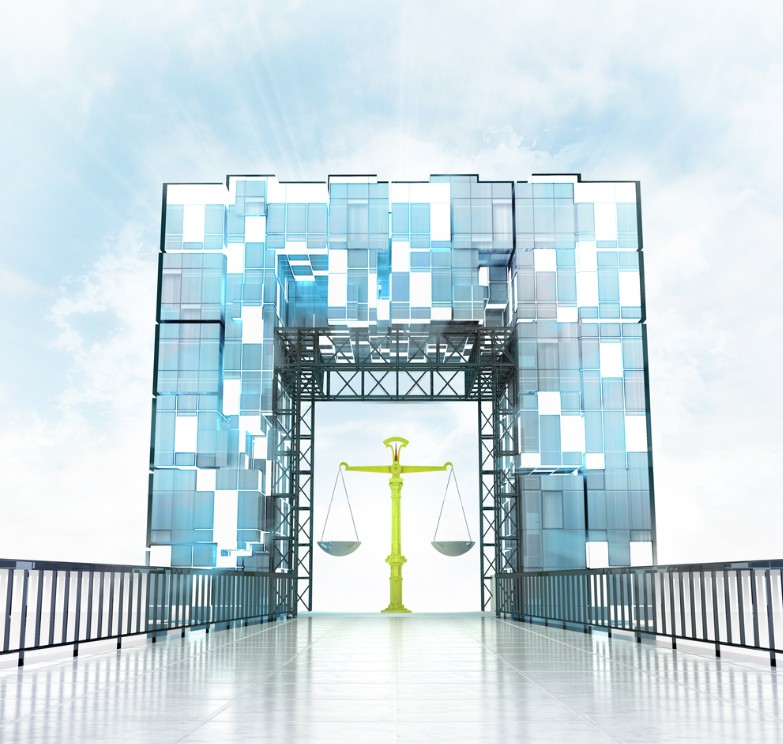Facts in Judaism
Can Free Will and Divine Foreknowledge Coexist?
If Hashem created us and knows the future, how can we claim to have free will? The Rambam tackles one of Judaism's deepest questions.
- Eran Ben Yishai
- |Updated

A timeless and widely discussed question continues to surface in theological and philosophical discussions: Does human free will truly exist if Hashem already knows the future? This famous paradox, known as the issue of yedi'ah ve'bechirah (foreknowledge and free will), is most famously articulated and addressed by the Rambam in Mishneh Torah, Hilchot Teshuvah (5:5).
The Rambam frames the dilemma:
"Perhaps you will ask: Since the Holy One, blessed be He, knows everything that will happen before it occurs - He knows whether a person will be righteous or wicked - then it must be impossible for that person to act otherwise. And if you say He knows someone will be righteous, but it is still possible for that person to be wicked, then how can that be considered true knowledge?"
The Rambam’s response is profound and humbling:
“Know that the answer to this question is ‘longer than the earth and broader than the sea’ (Iyov 11:9). It involves numerous deep principles and lofty mountains of understanding. But you must grasp this idea that I am about to explain: We have already clarified in Hilchot Yesodei Hatorah, Chapter 2, that Hashem does not know things the way humans do - through knowledge external to themselves. Human beings and their knowledge are two separate things. Hashem, by contrast, is one with His knowledge. And because of this, human understanding cannot grasp the nature of Hashem’s knowledge. Just as we cannot fully grasp the essence of the Creator, as it says, ‘Man shall not see Me and live’ (Shemot 33:20), so too we cannot comprehend His knowledge. As it says (Yeshayahu 55:8), ‘My thoughts are not your thoughts, and your ways are not My ways.’ Therefore, we cannot understand how Hashem knows all creatures and their actions. But we must be absolutely certain that human actions are in our own hands - Hashem does not compel or decree our choices. This is not something we believe just because of tradition; we know it through clear, rational proof. That is why the prophets teach that people are judged according to their actions, whether good or bad. This principle underlies all prophecy” (Hilchot Teshuvah 5:5).
Understanding the Rambam’s Answer
The Rambam draws a clear line between human knowledge and Divine knowledge. When humans learn something, it comes from outside themselves - through reading, listening, or observation. But Hashem’s knowledge is not separate from Himself; He and His knowledge are one and the same. Since this is fundamentally beyond human comprehension, the question becomes unanswerable by human logic. As the Rambam explains, we cannot even begin to grasp what it means for Hashem to “know” something.
Some of the Rambam’s commentators elaborated on his answer, helping to clarify its depth.
Rabbi Yosef Karo, in his commentary Kesef Mishneh, writes that the Rambam’s intent was to preempt confusion. If someone tries to tackle this question with human logic, their mind may become unsettled. Therefore, the Rambam explains that this question cannot be answered using ordinary reasoning. It is beyond the human capacity to resolve.
Rabbi Menachem Krakowski in Avodat Hamelech, distinguishes between logical impossibilities and matters that are simply beyond comprehension. Effectively, the Rambam concedes that if Hashem's knowledge were like ours, then free will and foreknowledge would contradict each other - a true logical impossibility. But since Hashem's knowledge is of an entirely different nature, the contradiction disappears. The issue is no longer a logical impossibility but a mystery beyond our grasp, and not everything beyond human understanding needs resolution.
Rabbi Yosef Kapach in his edition of Mishneh Torah, states that the Rambam seeks to disqualify the question altogether. The premise of the question is rooted in a flawed, human-centric understanding of Hashem’s knowledge. Only someone who mistakenly imagines Hashem’s knowledge to be like human knowledge can see the question as valid.

Why Free Will Matters
The belief in human free will is foundational to Jewish faith. It underpins the entire system of mitzvot (commandments), reward, and punishment. If humans lacked the ability to choose freely, there would be no sense in commanding them to act in specific ways, nor in rewarding or punishing them for their deeds. Thus, the Rambam insists that our choices are genuinely our own, even though Hashem knows all outcomes.
As for Hashem’s foreknowledge, Judaism does not treat this as knowledge in the human sense. Since we cannot comprehend what it means for Hashem to “know” something, the apparent contradiction with free will dissolves. Yes, Hashem knows everything. But we cannot and need not understand how. And because we cannot comprehend what it means for Hashem to know something, the question “If He knows, how can we have free will?” becomes irrelevant.

